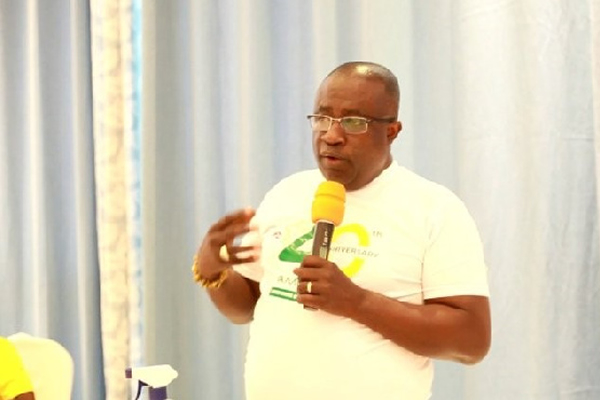Development Bank must collaborate with RCBs - Apex Bank Board Chairman

Dr Aubynn is of the view that rural and community banks already have a focus on development banking and are very well-positioned for such a collaboration to bring development particularly to the less privileged.
Dr Aubynn stated these and more in an interview with Business & Financial Times on the sidelines of the 40th Anniversary Lecture of Amenfiman Rural Bank at Tarkwa recently.
He is of the view that for the expected impact and the primary objective behind the establishment of the Development Bank to be realised, the rural and community banks must be the pivot around which the operations of the Development Bank must revolve because that is where development emanates; it could also be the fulcrum around which the development bank will disburse its funds and touch base with the expected redevelopment.
“I think it is time we looked at the banks that are closer to the people, because we (rural and community banks) know how to deal with them and because we are closer to them, we know them, we visit them, we know their assets and their families,” he stressed.
“We need to try and harness these opportunities that the rural banks have because of their locations and their specialized knowledge of those localities. So, I think the Development Bank that is coming should do well to collaborate effectively with the rural banks”, he added
The development Bank according to the Finance Minister will help address two important constraints in the country’s financial system which is the lack of long-term funding, and the lack of adequate funding to productive sectors of the economy.
The primary focus areas of the Development bank will be agribusiness, with a focus on off-farm value-chain activities, manufacturing, ICT, software; and allied services including Business-Process Outsourcing, tourism, and boosting homeownership through affordable and longer tenure mortgage finance.
The government recently secured a €170million facility from the European Investment Bank for the establishment of the Development Bank of Ghana (DBG), which forms part of measures to support businesses and bring the economy back to normality post-COVID-19.
EIB’s backing for the new National Development Bank seeks to support Ghana’s vision of empowering the private sector to embrace new business opportunities, create skilled jobs and successfully overcome COVID-19 challenges as mentioned by the President.
EIB’s unique technical, environmental and financing expertise is supporting priority business investment and delivering the green transition in Ghana and across Africa.
Development banks are those which have been set up mainly to provide infrastructure facilities for the industrial growth of any country and provide financial assistance for both public and private sector industries.
NEWS |
| News & Reports |